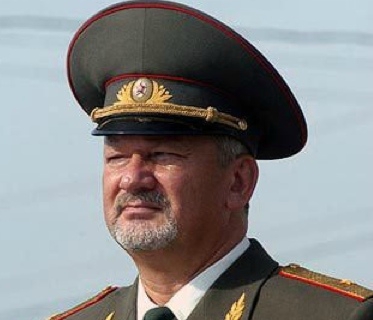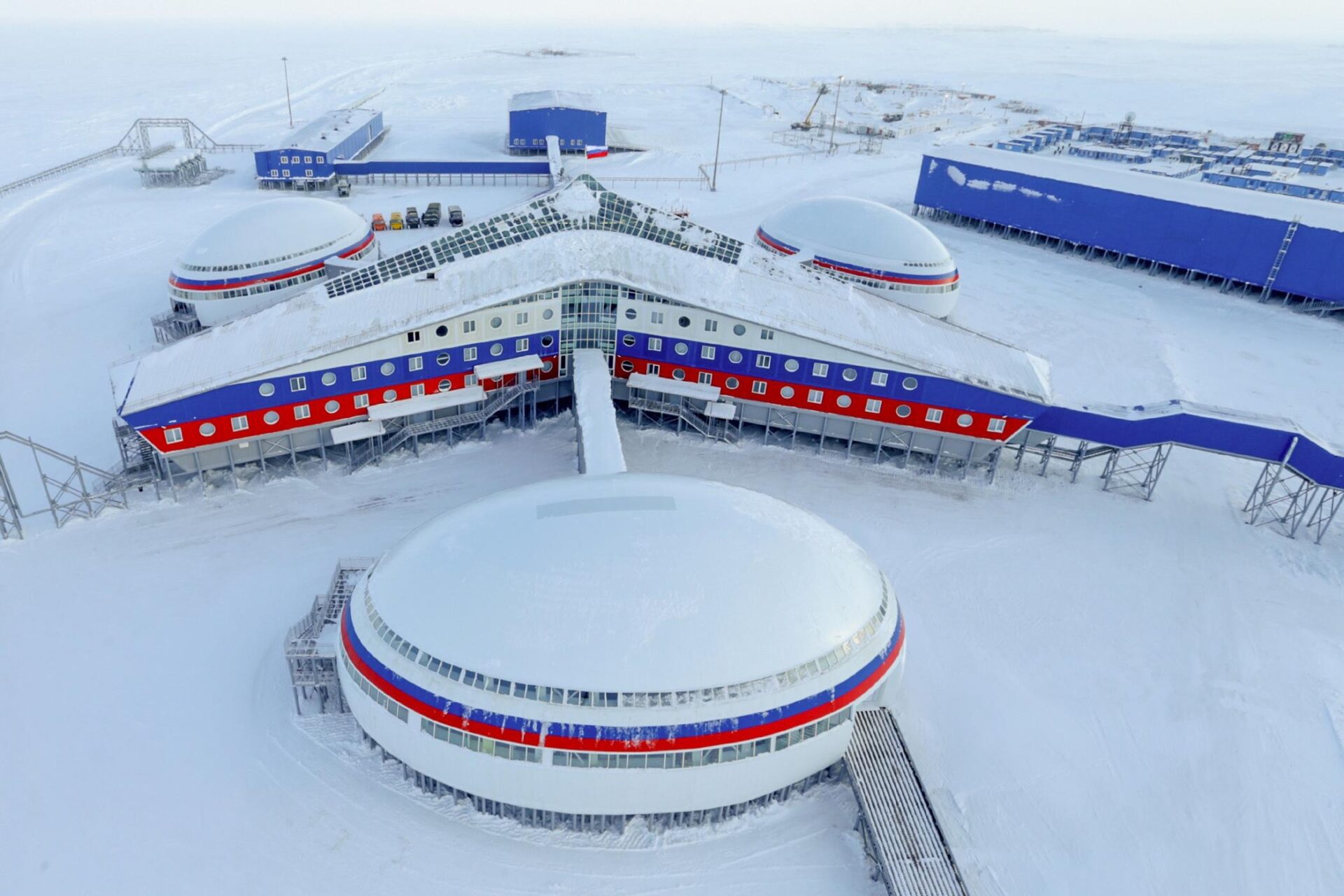
The Kremlin ‘Specialist for Creating New Independent States’ Moves to Eastern Ukraine
The Kremlin ‘Specialist for Creating New Independent States’ Moves to Eastern Ukraine
The “commander-in-chief” of the “Novorossiya” defense forces (the Russia-supported separatists fighting in eastern Ukraine), Igor Girkin (a.k.a. Strelkov), told journalists recently that prior to March 31, 2013, he had been a colonel in the Russian Federal Security Service (FSB). By his admission, he had participated in conflicts in Transnistria and Yugoslavia as a volunteer, and in Chechnya under contract (Gazeta.ua, July 12).
And Girkin/Strelkov is not the only member of the separatists with this background of foreign mercenary operations coupled with Russian/Soviet security services experience. It is interesting to note that the self-proclaimed government of the “Donetsk People’s Republic” just appointed as its new deputy prime minister Vladimir Antjufeev, the former head of the KGB of the Pridnestrovian Moldavian Republic (PMR—Moldova’s breakaway region of Transnistria, which is politically and economically supported by Moscow). On July 10, he was presented to journalists at a joint press conference, attended by Girkin/Strelkov and Aleksandr Boroday, the self-proclaimed “prime minister” of the Donetsk separatist “government.” According to Antjufeev, he will be responsible for security issues as well as justice and home affairs (Moskovsky Komsomolets, July 11).
On the eve of the collapse of the Soviet Union, Vladimir Antjufeev was a deputy head of the Criminal Department of the Ministry of Interior Affairs of the Latvian Soviet Socialist Republic. And as the Soviet state began to splinter, Antjufeev became one of the leaders of the military groups that fought against the new (anti-Kremlin) Latvian government. The Latvian Prosecutor’s Office opened a criminal case against Antjufeev, but he fled to Russia. At the end of 1991, Antjufeev reappeared in Transnistria and took on the pseudonym Vadim Shevtsov. From 1992 to 2012, Shevtsov (Antjufeev) served as the head of the PMR’s KGB service and was one of the people closest to the “president” of Transnistria, Igor Smirnov. In 2004, Antjufeev was included on the list of PMR leaders whom the European Union declared persona non-grata. In 2012, he moved to Moscow. In spring 2014, Antjufeev participated in Russia’s operation to annex Crimea (rusvesna.su, kommersant.md, July 10).
According to the newspaper Moskovski Komsomolets, Vladimir Antjufeev is infamous as a “specialist for creating new independent states.” Notably, Valery Lickai, Transnistria’s secretary of state and, in fact, the “main brain” behind the idea of a separatist Transnistrian republic, admitted that the Kremlin supported regional separatist movements in different parts of the Union of Soviet Socialist Republics (USSR) before its collapse in 1991. And it looks like now the Kremlin is returning to these same tactics. Moskovski Komsomolets notes that Antjufeev has “a lot of friends” in the Kremlin, and Marina Perevozkina, the paper’s correspondent, is certain that the former head of the Transnistrian KGB did not go to eastern Ukraine purely on his own initiative (see EDM, July 11; Moskovski Komsomolets, July 11).
In a June 1992 conversation with this author, Antjufeev said that he did not care about the “communist idea” but he respected the Soviet Union as a strong Russian state. Igor Girkin/Strelkov and Aleksandr Boroday share almost the same views. Girkin/Strelkov is a monarchist, or tsarist imperialist, while Boroday is a commentator for the Russian far-right nationalist newspaper “Zavtra” and one of the founders of the nationalist online Den-TV. Moreover, it is worth noting that both Girkin/Strelkov and Boroday fought in Transnistria in the early 1990s and are friends of Antjufeev from this time (see EDM, July 11; author’s interview, June 1992).
According to Moskovski Komsomolets, the appointment of Antjufeev to a high position within the Russia-backed Donetsk separatist “government” shows the strengthening of Girkin/Strelkov’s influence in the region. As the newspaper noted, the appearance of Antjufeev appears to negate a previous attack by some “Moscow groups of influence” on Girkin/Strelkov. In particularly, the newspaper was referring to the recent visit to Donetsk of the Kremlin propagandist Sergey Kurginyan, who, at a press conference on July 7, openly condemned Girkin/Strelkov for surrendering Slovyansk and Kramatorsk to Ukrainian forces. Kurginyan even accused the separatist military commander of collaborating with the Ukrainian military. Furthermore, Kurginyan asserted that Girkin/Strelkov had already received “enough weapons” from Moscow (Moskovski Komsomolets, July 11).
Kurginyan had made this statement amid growing criticism from some Russian nationalists (for example: philosopher Alexander Dugin, the leader of the Eurasian Movement, and Alexander Prokhanov, the editor of the newspaper Zavtra, where Boroday previously worked,) who had condemned the Russian president for allegedly betraying the separatists. Indeed, the Kurginyan visit looked as if the Kremlin really decided to stop helping the separatists (newsnews.tv, July 9). But the Russian nationalists’ fears proved unfounded. According to a July 14 statement from the US Department of State, the Kremlin continues to support the armed separatists in Ukraine (State Department statement, July 14).
The emergence of Vladimir Antjufeev as one of the leaders of the Donetsk separatists shows that Moscow has decided to maintain its support for the fighters and continue its policy of surreptitiously breaking up neighboring countries. “It means that Moscow will not betray Novorossia [one of the names of the separatist state in eastern Ukraine] or Igor Strelkov,” Marina Perevozkina wrote triumphantly (Moskovski Komsomolets, July 11).
The Kremlin continues to allege that the conflict in Donetsk and Luhansk is a Ukrainian civil war in which Russia has no role. But clearly Antjufeev, Girkin/Strelkov and Boroday have a history of taking part in secessionist military operations across the former USSR on Moscow’s orders. So as more such figures come to light in eastern Ukraine, Russian propaganda will have an increasingly difficult time maintaining a coherent narrative on the crisis that allows the Kremlin any level of deniability.


